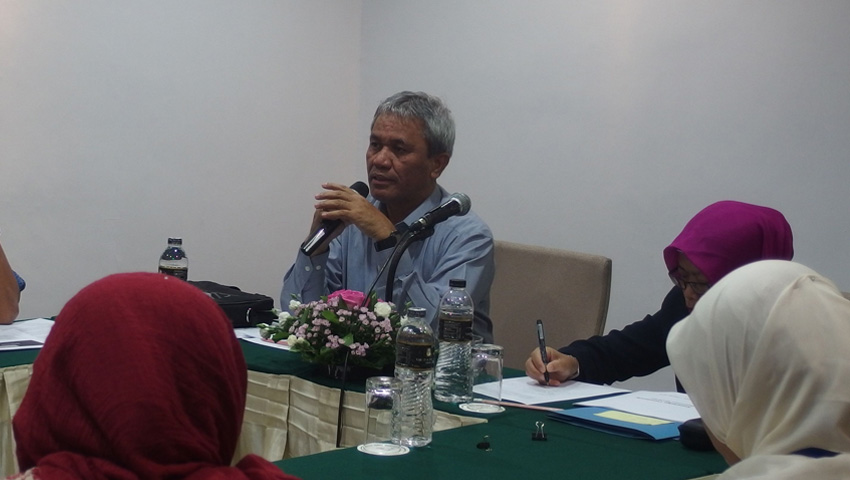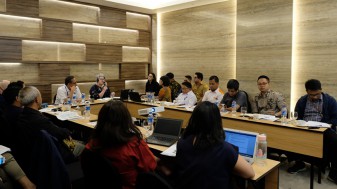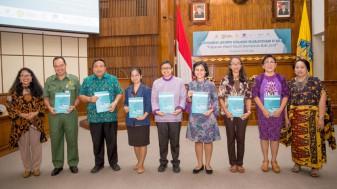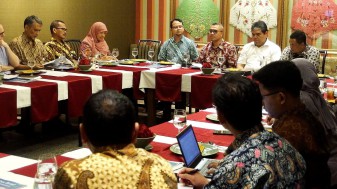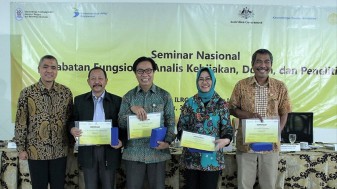The Knowledge Community Working Group for Bureaucratic Reform is facilitated by the Knowledge Sector Initiative (KSI). KSI are seeking to strengthen the use of evidence-based research in the policy-making process through the exchange of knowledge and broader engagement with stakeholders and through collaboration between knowledge producers, users, and intermediaries in an enabling environment.
Enactment of Law No. 5/2014 on State Civil Apparatus or Aparatur Sipil Negara (the ASN Law) is aimed at establishing government support for bureaucratic reform. Based on this, the Knowledge Community for Bureaucratic Reform held a working group discussion on October 7, 2015 in Jakarta. Several relevant stakeholders were invited to participate, including the Ministry of Planning and Development (Bappenas), the Ministry of Administrative Reform and Bureaucratic Reform (Kemenpan RB), the Ministry of Home Affairs (Kemendagri), the National Institute of Public Administration (LAN), the State Employment Agency (BKN), the Civil State Apparatus Commission (KASN) and KSI partners. The focus was on two major policy issues: encouraging the use of evidence as a basis for bureaucratic reform and strengthening knowledge management to improve communication, and promoting coordination among government agencies in the implementation of bureaucratic reform.
In her opening speech, Dra. Rd. Siliwanti, MPIA, Director of State Apparatus, Bappenas, said: "Good governance and bureaucratic reforms are necessary to support the current development priorities. Gaps in ASN competency can be addressed by using evidence-based knowledge to enhance systems and human resources, and by establishing good knowledge management."
Gender equality issues and the policy analyst positions outlined in the ASN were also discussed. The National Institute of Public Administration (LAN) has incorporated gender-oriented policies in its studies and is currently organising the selection process for policy analyst positions in central and local districts.
Endi Jaweng from KPPOD pointed out that, "We can intervene in the preparation of the Learning Implementation Plan (RPP) and ASN standard job competency, for example, by providing research based input and ensuring that the position fits the demands and needs of the public service."
Prof. Eko Prasojo, Professor of Public Administrative Science, University of Indonesia added, "It is necessary to evaluate the implementation of an open selection process for High Position Leaders (JPT) and there is also a need to assess the readiness of some ministries and agencies for merit system. Formulation of competencies for government requires performance-based structures and knowledge management."
As a follow-up to this meeting, KSI will visit each participant in the Working Group, and conduct face-to-face or written interviews to get input and share the problems related to making bureaucratic reform.

